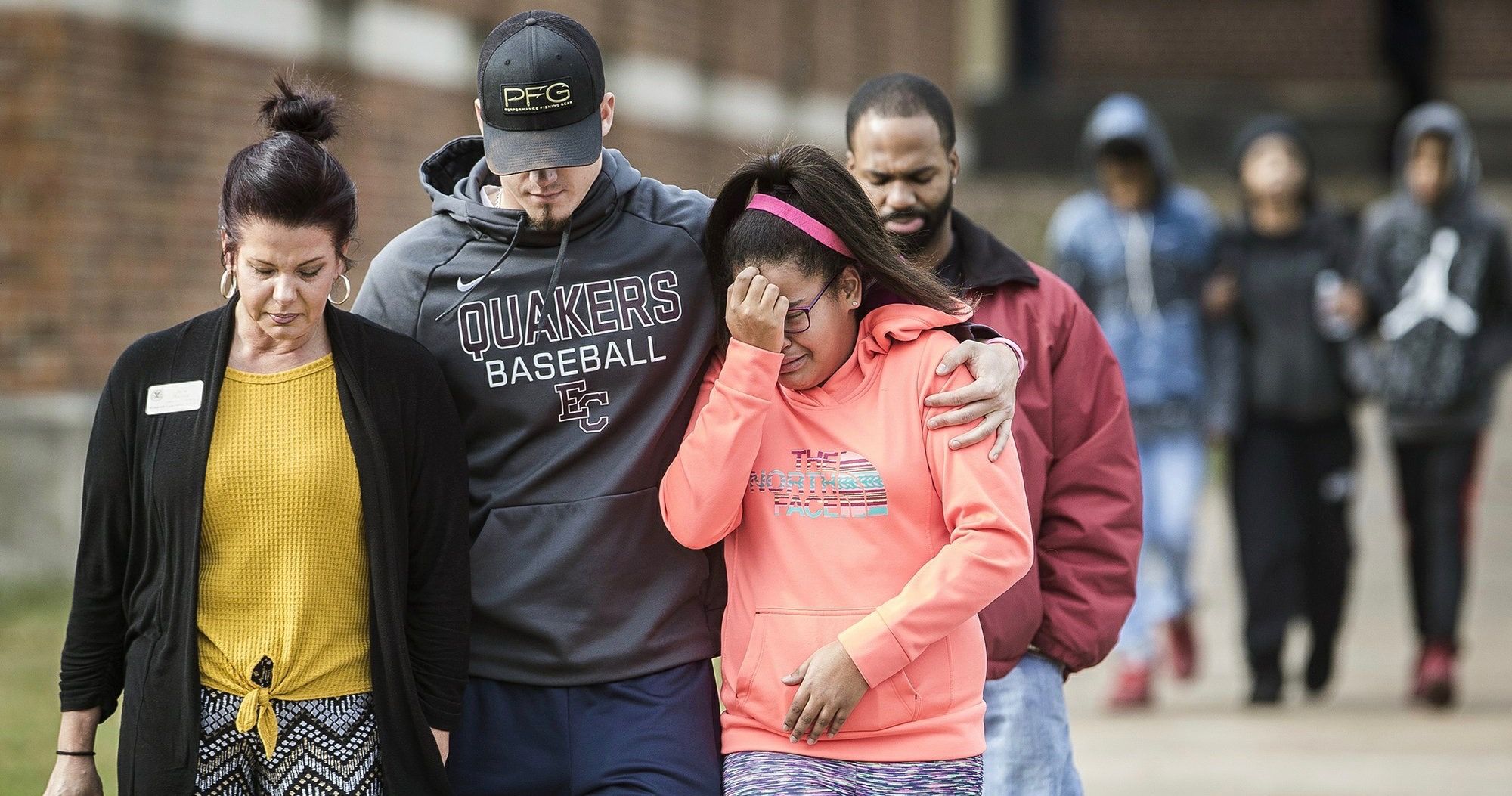Last Friday, Mary York, 43, was charged with six felonies after her 14-year-old son entered Dennis Intermediate School in Richmond, IN, last December 13, firing a weapon. Although most parents of mass shooters in the US don’t face charges, even though juveniles usually obtain weapons from their home, York’s case may set a precedent.
According to police reports, York’s son, who was not a student at Dennis, brought a pistol and rifle into the locked-down school. After officers confronted him, he shot out the glass of one of the school's locked doors to access the building. He then passed by classrooms full of students behind locked doors. Police pursued the suspect and exchanged gunfire. In the south stairwell on the second floor, the teen died from "an apparent self-inflicted gunshot wound."
On October 11, Prosecutor Mike Shipman filed seven charges against York almost 10 months after her son killed himself inside Dennis after shooting through a glass door to gain access to the building. The charges include dangerous control of a child, neglect of a dependent and criminal recklessness for knowingly allowing her son to have a weapon despite his continued threats against students.
According to the affidavit of probable cause, York’s son had been evaluated and treated for mental health problems in May 2018. He had confessed thoughts of committing suicide as well as killing students he said had bullied him. York not only removed her son from treatment but also allowed him to discontinue taking his medication.
In October 2018, her son fired a handgun inside their home, yet York allowed firearms to be kept in the home in a gun cabinet, which her son later broke into to retrieve the weapons he brought to the school. After Judge Charles Todd Jr. ruled there was probable cause for the charges, York was arrested last Monday. After turning herself in, she posted $750 to satisfy a $7,500 bond.
From 2000 to 2017, 67 people were killed and 86 wounded at elementary and secondary schools and 70 were killed and 73 wounded at post-secondary institutions, according to the Bureau of Justice Statistics. The parents of the shooters have never faced charges even though in most cases they have obtained weapons at home.
In 2018, the Washington Post looked at 145 school shootings this century. In 84 of the 105 cases where the source of the weapons used was identified, the shooter retrieved the weapon from home or from a relative or friend. In that time, only four adults were convicted and punished for the shooters' access to firearms, none were held responsible for negligent-storage of weapons, and the most severe penalty was a 29-month sentence for involuntary manslaughter.
Shipman used Indiana's child-access-prevention law to level the most serious charge against York. The Level 5 felony accuses York of dangerous control of a child, which carries a three-year advisory sentence with a range of one to six years as established by the Indiana legislature.
RELATED: Mom Accidentally Shoots Daughter After She Came Home From College To Surprise Her
Even though parents are not often charged criminally for their failure to prevent a shooting, that doesn’t shield them from civil suits brought on by victims or victims' families, which can result in hefty settlements if parents are found to have been negligent with their children's access to firearms and/or failed to adequately recognize the danger their children posed because of mental-health issues.

